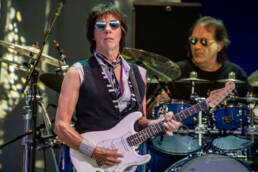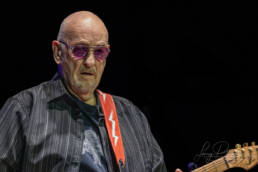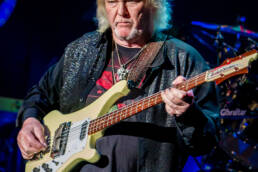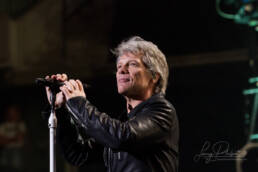Rod Argent: The Keys to a Timeless Tune
The Spark That Struck the Chord
Picture a young Rod Argent in 1950s St Albans, England—a small cathedral city north of London—hunched over a piano in his parents’ modest home. What lit the fuse for his musical odyssey? It was the sound of his father’s dance band rehearsals drifting through the walls, mingled with a life-altering moment: hearing Elvis Presley’s “Hound Dog” crackle over the radio in 1956. At 11, Argent was already a choirboy at St Albans Cathedral, his soprano voice soaring through ancient stone, but Elvis flipped a switch. “That raw energy—it was chaos and freedom all at once,” he’d later recall. Classical training gave him structure, but rock ‘n’ roll gave him a pulse. Music became his way to bridge the sacred and the wild, a calling he couldn’t ignore.

From Choirboy to Chart-Topper
Born Rodney Terence Argent on June 14, 1945, in St Albans, Hertfordshire, Rod was the son of Les, a dance band leader, and Pauline, a homemaker who encouraged his early piano lessons. A prodigy of sorts, he mastered Bach and Beethoven by his teens, but the British Invasion—Beatles, Stones, Kinks—pulled him toward pop. In 1961, at 16, he formed The Zombies with schoolmates from St Albans School. They started as a lark, jamming in basements, but within three years, they’d cracked the code to immortality.
The Zombies’ debut single, “She’s Not There” (1964), penned by Argent, hit #2 in the US—a moody, jazz-tinged marvel born from his knack for melody and heartbreak. Their 1968 masterpiece, Odessey and Oracle, recorded in Abbey Road’s hallowed halls, flopped initially but later rose as a psychedelic phoenix. By then, the band had split—exhausted by touring and broke despite their hits. Argent didn’t sulk. He launched Argent in 1969, a prog-rock outfit that flexed his virtuoso keys and heavier ambitions. After that dissolved in 1976, he pivoted to producing, session work, and a solo career that’s stretched into his 70s, including 2023’s Circle of Friends reunion with Zombie cohorts.
He married Cathy in 1972—a dancer he met during The Zombies’ heyday—and they’ve lived quietly in Buckinghamshire, raising two kids. A 2016 stroke slowed him, but by 2018, he was back on stage, defying odds with that same boyish grin.
Career Canvas and Collaborations
The Zombies’ golden lineup: Argent (keyboards, vocals), Colin Blunstone (lead vocals), Chris White (bass), Hugh Grundy (drums), and Paul Atkinson (guitar). Post-1968, Argent (the band) featured Russ Ballard (guitar, vocals), Jim Rodford (bass), and Robert Henrit (drums)—a crew that churned out early ’70s FM staples. Ballard’s exit in 1974 dimmed their shine, but Rod’s vision carried them to the end.
Argent’s ties run deep. He produced Blunstone’s solo work, co-wrote with White, and played on tracks for The Who ( Pete Townshend’s a fan) and Andrew Lloyd Webber. His cousin Jim Rodford joined late-era Zombies tours until his 2018 death. Rod’s TV footprint? Sparse but memorable—The Zombies: Live at the BBC (2008) captured their revival, and he scored the 1989 film The Fruit Machine. Awards? The Zombies landed in the Rock & Roll Hall of Fame in 2019, a belated crown for Odessey. Argent nabbed an Ivor Novello in 1973 for “God Gave Rock and Roll to You,” later a Kiss hit.
Here’s the big ones, all Argent originals:
- “She’s Not There” (Begin Here, 1964) – A #2 US hit, its minor-key magic and slinky organ made it a ’60s cornerstone.
- “Time of the Season” (Odessey and Oracle, 1968) – Peaked at #3 US post-breakup, its hypnotic groove still haunts airwaves.
- “Hold Your Head Up” (All Together Now, 1972) – With Argent, this #5 UK/US rocker showcased his prog chops, co-written with White.
- “God Gave Rock and Roll to You” (In Deep, 1973) – A cult classic, later Kiss-ified, it hit #114 US in its day.
Storms in the Spotlight
Controversy? Argent’s career leans more toward quiet resilience than tabloid flare. The Zombies’ 1968 split sparked whispers of mismanagement—bad contracts left them penniless despite hits. A 1990s legal spat with impostor “Zombies” bands (led by ex-members) saw Argent and Blunstone reclaim their name in court by 2001. Health scares made news too—his 2016 stroke canceled tours, and a grim prognosis had fans fearing the worst. Yet, he returned, telling Rolling Stone in 2019, “Music saved me.” Offstage, he’s dodged scandal—his life’s a steady rhythm, not a crashing cymbal.
The Eternal Season
Rod Argent’s tale is one of reinvention—from choirboy to pop pioneer, prog maestro to elder statesman. At 79, he’s still tinkering at the keys, his 2023 Zombies gigs a testament to a muse that never quit. Odessey and Oracle’s slow rise to legend status mirrors his own—underrated in its time, undeniable in hindsight. He didn’t chase the spotlight; he built a soundscape that found it anyway.








